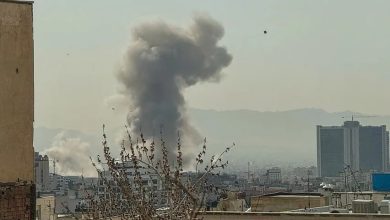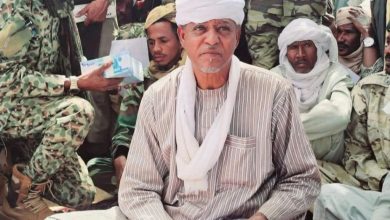Washington’s Sudan Policy: Continued Failure

Report – Sudan Events
Early on, after the outbreak of war in Sudan between the Sudanese Armed Forces and the Rapid Support militia (RSF) in mid-April 2023, the policy of the United States of America towards what was happening met open critique and accusations of inability. Last May, members of the Senate criticized the efforts of President Joe Biden’s Administration regarding Sudan, describing it as disappointing.
Without a goal
One of the reasons for the lack of success of Washington’s efforts in Sudan is the absence of a clear goal, in view of the fluctuation of relations over four decades and the use of (carrots and sticks) and continuous procrastination even after the departure of the Ingaz Regime.
This hypothesis was expressed by the former American diplomat who once was closely linked to developments in the Sudan, Cameron Hudson, who said in a recent remarks that American policy towards Sudan was generally without a goal, and lacked any kind of strategic focus.
Hudson completely ruled out the possibility of the United States engaging in effective efforts to end the crisis this year (2024), and expected that Washington would not focus on the conflict as required.
Confusion and unwillingness
Washington’s miscalculation – in the opinion of observers – or its unwillingness to intervene decisively, pushed it to use useless approaches in dealing with the Sudanese crisis, as the Jeddah platform did not succeed in putting an end to the fighting, and the sanctions did not affect the pace of the military operations.
This matter brought the Joe Biden administration critique from within the United States itself, as legislators began to press in into taking a more forceful approach towards the war in Sudan.
In this context, political science professor Dr Mohammed Khalifa Siddiq expressed the view that Washington’s policy towards Sudan is confused, and considered it a mixture between creative chaos and leaving the solution of issues to time.
In a statement to (Sudan Events), Khalifa described the American failure as “premeditated,” and noted that it has international and regional mechanisms, agents, and mediators that can contribute to resolving the Sudanese crisis.
But he considered it “unwilling” and allowing creative chaos to reshape Sudan according to the map that allows the emergence of new states. He added that America is “working to let the matter simmer over a hot fire, not a quiet one.”
Khalifa downplayed the US sanctions, saying that they had proven ineffective for decades, and stressed that if they had been “on the parties that fuel the conflict regionally,” they would have been useful.
Lack of Knowledge
Journalist and political analyst Tariq Al-Mughrabi believes that American policy is based on a lack of knowledge of Sudan, its political geography, its culture, civilization, and the character of its people. Therefore, it always appoints mediators who are often opposed to the government or the existing regime, and thus they are unable to correctly evaluate the situation in terms of the balances and equations and deal according to their assumed interests.
Al-Maghrabi told (Sudan Events) that what is new in American policy is that in the post-Ingaz period, a group of opponents came who were loyal to American policy, but they found it difficult to avoid the effects of the decisions that were taken during the days while they were in the opposition and he pointed to the entry of a new factor into regional politics – America’s agents – such as the UAE, “which also does not seem to understand the structure of Sudan and has dealt with the principle of buying loyalties to implement a harsh policy, resulting in many challenges of which the war.”
He believed that the deal could have been smooth if the American agent had been another country that had an understanding of the entire Sudanese political system and dealt with its agenda in a way that maintained balance. He stressed that the UAE wants to impose solutions, and he considered this an end to its regional role soon, according to what reports and indicators showed.
Al-Maghribi expected a change soon, and direct dealings, a presence of specialists in Sudan in a way that serves American interests and leads to the desired results.



